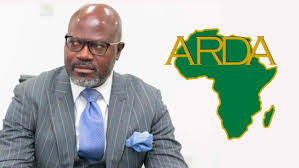In support of the development and deployment of liquefied petroleum gas (LPG) solutions throughout the continent, pan-African downstream organization, the African Refiners and Distributors Association (ARDA), and the UN-backed Global LPG Partnership have mobilized $1 billion in financing for clean cooking solutions in Africa.
As such, the participation of ARDA Executive Secretary, Anibor Kraghan, who will feature as a speaker at this year’s MSGBC Oil, Gas & Power 2024 conference scheduled for Dakar, Senegal from December 3-4, will showcase the role downstream expansion has in delivering an inclusive energy future in Africa.
A news report from African Press Organization (APO) Group circulated on behalf of Energy Capital & Power, indicated that representing the only pan-African organization for the continent’s downstream sector, ARDA’s mandate to become a voice for all African downstream stakeholders was becoming more effective.
According to the news report, at a time when disruptions in global supply chains continue to cause price shocks and instability worldwide, many African countries continue to rely heavily on refined product imports.
In this context, ARDA advocates the need to improve investment across the downstream sector so that Africa can improve energy security and self-reliance with upgrades to existing refineries, the construction of new facilities and the establishment of regional distribution networks.
Having recently joined the ranks of oil-producing nations from its first shipment of crude oil from the Sangomar field development this month, in May 2024, Senegal’s Saint-Louis Region Governor, Alioune Badara Sambe, announced that the country will build a new 250 MW gas-to-power plant near Saint-Louis, which will leverage gas from the country’s flagship Greater Tortue Ahmeyim (GTA) field – due to start production by the end of this year.
Senegalese energy company, West Africa Energy, plans to open the country’s first and largest combined cycle gas power station in December 2024. The Cap des Biches plant will have an initial estimated capacity of 160 MW and leverage sizeable gas reserves to be brought online by large-scale projects underway in the region. Currently in its construction phase, the project is expected to enter generate 2,390 GWh of electricity for consumers.
Meanwhile, with a capacity of 360 MW, the Sandiara gas-to-power plant is slated to start construction this year in Senegal’s Special Economic Zone and will feature an annual production capacity of 2,900 GWh.
West Africa’s oldest refinery, the Société Africaine de Raffinage refinery in Senegal, is currently undergoing major upgrades.
The country’s government is currently in discussion with financial institution the African Export-Import Bank to support $500 million in syndicated finance to increase annual production from 1.5 million to 3.5 million tons of refined petroleum products.
With sizeable offshore oil and gas reserves, the MSGBC region’s abundance of natural resources is set to drive downstream investment while providing much-needed energy development to the West African region. In addition to the Sangomar and GTA developments, the MSGBC region is home to the Yakaar-Teranga field, offshore Senegal, which holds confirmed reserves of 25 trillion cubic feet (tcf) of natural gas.
Meanwhile, the BirAllah gas field offshore Mauritania is estimated to contain nearly 60 tcf of gas and is poised to commence production in the third or fourth quarter of 2024.
In light of these developments, the MSGBC region’s downstream industry represents a highly attractive investment opportunity owing to rising regional demand, industry-focused policies and the introduction of local oil and gas to the market in 2024.
As such, Kragha’s participation at MSGBC 2024 is set to examine developments across the regional downstream industry, challenges faced and strategies for expanding infrastructure.






